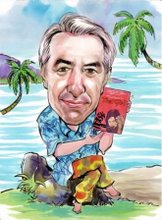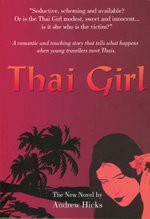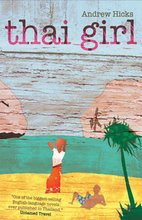
A plea for help with my quest to find Jack.
If you’ve been reading this blog recently, you can’t have missed the fact that I’m obsessively researching the life of the Bangkok based author, Jack Reynolds, who published a solo novel, “A Woman of Bangkok” in 1956. This seminal book was the first of a long line of ‘bar girl swallowed my wallet” stories and in the view of the critics is far superior to its many imitators.
It’s snappily written and Jack had a particular interest in language varieties and dialects, especially Lincolnshire and Thinglish, so he has a keen ear for authentic dialogue which is one of the main charms of his writing.
When, a few months ago I read ‘A Woman of Bangkok’ for the first time, one expression used surprised me as it seemed more Estuary eighties than middle class nineteen fifties. I could even say I was ‘gobsmacked’.
Later trawling the internet I came across what could be called a meeting of Jack and Susan Boyle. The website in question was www.vocbulary.com and the article is titled, “Susan Boyle is Gobsmacked (and Poleaxed Too)”. It reads as follows.
“Unless you've been living under an Internet-free rock, you've probably seen the enthralling video of Scotland's Susan Boyle singing on the television show Britain's Got Talent. According to the latest numbers, the video of Boyle's performance has already attracted more than 100 million online views. But it's not only her singing prowess that is attracting worldwide attention: it has also been reported that "Web searches for the term gobsmacked spiked after Boyle used the British slang meaning utterly astonished when describing her reaction to newfound widespread acclaim."
The graph for gobsmacked on Google Trends bears out the huge spike in online searches, buoyed by Boyle's use of the term in numerous interviews. She told CNN, for instance, "I'm gobsmacked, absolutely gobsmacked." Previously, this colloquialism hadn't circulated much outside of the British Isles, but now it's fair to say that Boyle has brought it to much wider notice in the United States and elsewhere…
British usage of gobsmacked has only become prominent since the 1980s, but the earliest known appearance of the term actually goes back to 1956. As Jerry Friedman noted recently on the Usenet newsgroup alt.usage.english, Google Book Search now reveals this passage from the novel Woman of Bangkok: "I'm so amazed that only the Malderbury dialect can express my condition: I'm 'properly gob-smacked.'" The author of Woman of Bangkok is one Jack Reynolds, but this is likely a pseudonym: also in 1956, the book was published in Britain as A Sort of Beauty under the name Jack Jones. And just to add to the mystery, the "Malderbury dialect" to which the narrator refers is a fabrication: there's no such place as Malderbury.
We can guess that Jack Reynolds/Jones had some ties to northern England or Scotland, where the term gob has long been a slang term for "mouth." According to Michael Quinion of World Wide Words, the word likely spread from Scottish Gaelic (where gob can mean "beak" and also suggests gab "talk"), primarily via insulting phrases like "Shut your gob!" ("Be quiet!"). So it's fitting that a Scot like Susan Boyle, who hails from the town of Blackburn about twenty miles from Edinburgh, should be the one to bring gobsmacked to international recognition.”
It’s a good guess but “Jack Reynolds” (real name, Emrys Reynolds Jones) was born in Buntingford, Hertfordshire to a father of Welsh origin who was the Congregational minister there in the village.
In “A Woman of Bangkok”, the hapless protagonist, Reginald Ernest Joyce is the son of the minister of the village of Malderbury. The novel thus opens with Reggie taking the train down to Malderbury to say goodbye to his parents before flying out to a commercial job in Bangkok where he falls for a Bangkok woman who swallows, inter alia, his wallet.
So there is no such place as Malderbury, the article tells us.
What intrigues me though is that I’ve had access to one of Jack’s old notebooks and in it there is a reference to Malderbury. In the passage in question Jack summarises the key stages of his life in a couple of pages and he says that in the late thirties he was for a year undergardener at Malderbury Grange.
But is this true? Did Malderbury Grange really exist? I’m sure my blog readers can find me the answer. Hertfordshire or Lincolnshire would be most probable as he worked as a gardener in both these counties.
One of the intriguing things about Jack is that his fiction was partly autobiographical and his writings about himself even in his unpublished notebooks also seem to mix fact and fantasy. In the middle of an accurate description of his life there comes a lurid detail such as that his father was killed in a bombing raid on London which in fact isn’t true.
Are these passages simply sketches for another autobiographical novel, spiced up with a little imagination, or are they intended as accurate accounts of his life?
To check an aspect of their accuracy I therefore need to know if Malderbury Grange really was real.
Now another extraordinary thing has happened. I have just met Michael Llewellyn, son of the late author and Oxfam stalwart, Bernard Llewellyn. Michael handed me a nicely printed book of poems published by Jack in the nineteen thirties, twenty pages of unpublished manuscript poems and a letter from Jack of September 1952 giving them to Bernard. All these are unknown to the world and to his family.
The poems are beautifully written but my point is that those dated 1938 to 1940 are written as from Welwyn and Wrotham.
When I worked as a solicitor in London half an age ago, one of our clients was the Wrotham Park estate. At around that time, it is known that Jack was working as a gardener. Perhaps therefore he was at Wrotham Park in Hertfordshire, not so far from his village of birth, Buntingford, and it served as his model for Malderbury Grange. This is all a bit speculative but I shall write to the estate and ask if they have employment records from that time and if there is any record of Jack.
All this detective work now leads me greatly to respect the many biographers who reconstruct the lives of their subjects years after their deaths. I have so many leads to follow up that I myself am overwhelmed.
I have tried but failed to find a local historian in Buntingford who would help me discover details and pictures of Jack at his village school and of the Congregational Church and manse where Jack’s father, Joseph was Congregational Minister from 1911 to 1922. (Jack was born in 1913.)
The family then moved to London and lived at 21 Castleton Road, Walthamstow, E.17 where Jack went to Trinity County School. This I have discovered merged with another school to become Wood Green County Grammar School in 1962. Do school records and photos from Jack’s time there in the twenties still exist?
Then Jack says in one of his articles that he was the only speedway rider to be son of a minister and to have a poem published in ‘The Listener’, the influential BBC magazine that published early poems of most of the great names of modern poetry. I know the speedway teams Jack rode for but have failed to find and trace anything about him on the internet. Trying to find his poem in ‘The Listener’ I have likewise drawn a blank. Where can indexes or copies of ‘The Listener’ be found?
I have unearthed Jack’ father’s obituary which of course defines his childhood and I have the passenger list for the ship on which he sailed for China in 1945. Extraordinarily I am in touch with a China friend of Jack’s now in Canada who is sending me pictures and anecdotes about Jack from the time. And I will go to a Friends Ambulance Unit reunion in London in May in the hope of meeting old China friends of Jack.
But can anyone open doors for me in Buntingford or about his Wood Green school, his speedway career or his poem in ‘The Listener’?
I feel sure the information is out there somewhere if only I can find it.
Andrew Hicks The “Thai Girl” Blog March 2010





1 comment:
Maybe Malderbury is an older version of a place name - still used in colloquial speech but not the official name? I've seen suggestions that "malder" might mean "matter" (=maltster).
In Britain there is a habit of keeping traditional spelling but changing the pronunciation, too. So the reverse is also possible - maybe he was writing the place as he'd speak it, but the official spelling is more ancient. So some variation of "burgh" or "borough" might also be involved.
I don't know where to take it from there - maybe check out outdated place names, there might be dictionaries available for that sort of thing.
Post a Comment